Helping Students to Achieve the Best of their Abilities
An Early Years Bilingual Programme for the Leaders of Tomorrow
Julian Jeffrey, Master of Wellington College International Tianjin
By Richard J. Cook
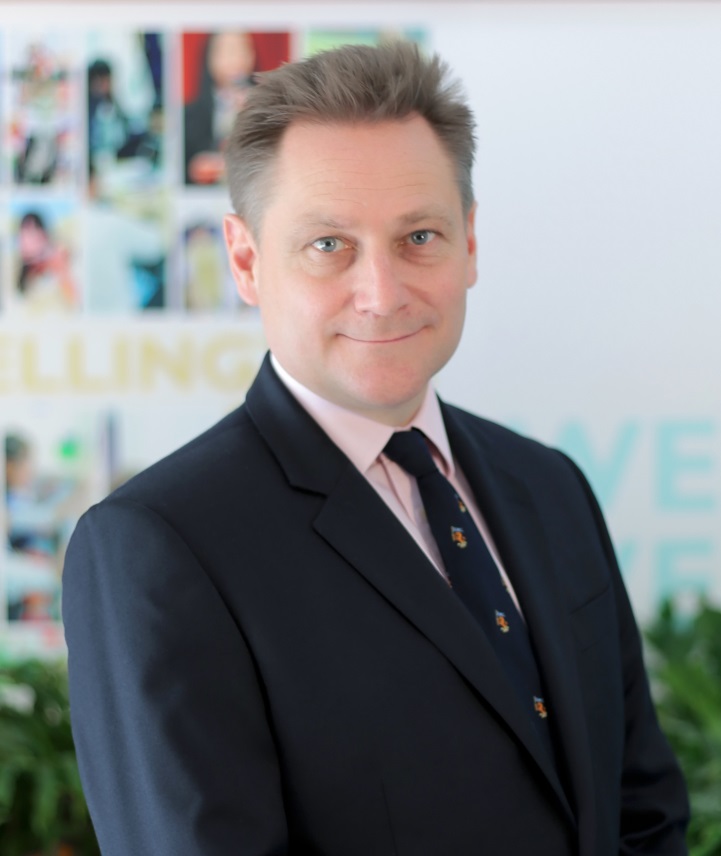 英国是一个有着浓厚精英教育传统的国家,自中世纪以来就形成了公立私立双轨制教育体系,英国惠灵顿公学于1859年由维多利亚女王为纪念大不列颠最伟大的军事家并曾两度任英国首相的惠灵顿公爵而建立,158年后的今天,惠灵顿公学已是英国最受尊敬的学府之一,同时也是青少年教育改革、创新的先驱。在过去的十余年中,这所男女同校寄宿学校一跃而起,在当今日新月异互联互通的世界中,成长为一所活力四射并广受学生家长青睐的名校。惠灵顿中国的学校都沿袭了母校英国惠灵顿公学所倡导的惠灵顿特质和价值观。
英国是一个有着浓厚精英教育传统的国家,自中世纪以来就形成了公立私立双轨制教育体系,英国惠灵顿公学于1859年由维多利亚女王为纪念大不列颠最伟大的军事家并曾两度任英国首相的惠灵顿公爵而建立,158年后的今天,惠灵顿公学已是英国最受尊敬的学府之一,同时也是青少年教育改革、创新的先驱。在过去的十余年中,这所男女同校寄宿学校一跃而起,在当今日新月异互联互通的世界中,成长为一所活力四射并广受学生家长青睐的名校。惠灵顿中国的学校都沿袭了母校英国惠灵顿公学所倡导的惠灵顿特质和价值观。
天津惠灵顿国际学校是声名卓著的英国惠灵顿公学的第一所海外分校。自2011年建校以来,天津惠灵顿国际学校迅速发展,成为中国华北地区一所知名的学校。学校为2-18岁不同年龄阶段的学生提供幼儿园至高中13年级的国际化教育课程。全英文授课教学环境,让学生真切感受到一流的英式教育。
现任校长Julian Jeffrey先生毕业于杜伦大学的历史专业,后在埃克塞特大学取得教师资格认证。1991年起Julian开始了他的教师生涯,他曾执教于伦敦的英国知名私立女校和英国惠灵顿公学,也曾担任英国Surrey一家私立预科学校的理事达6年之久。在抵津之前,他已经在英国惠灵顿公学工作了18年,先后担任历史部主管和助理舍监。他在职业生涯早期曾兼任雷丁大学客座讲师,还在校内承担了多种教务事务,即A-Level考试事务官和教职员工培训和发展负责人。在他被任命为天津惠灵顿国际学校的校长之前,于2014年至2017年担任该校副校长和中学部主管。
在与Julian 校长沟通的过程中,他与我们分享了在惠灵顿公学工作的心得体会。在英国的教育工作经历不仅使他有着寻求超越、挑战以及保持好奇心的特质,也使得这些优良的特质延续到了对学生的教育工作中。谈及天津惠灵顿国际学校对中西结合教育的实践,Julian 说,这是一个极具吸引力的教育模式,它能够帮助学生获取更多的发展机遇,也为家长提供了一个新的教育选择。Julian的校长寄语一定可以让您明确天津惠灵顿国际学校的教育理念:“欢迎来到天津惠灵顿国际学校。天津惠灵顿国际学校作为惠灵顿公学大家庭的一份子,提供优质的惠灵顿教育。培养全面发展的孩子始终是我们一切教育工作的核心,无与伦比的国际课程体系以及我校的学生关怀系统有益于造福整个社群。我们的目标是通过贯彻我校的核心价值观—勇气、正直、尊重、善良、责任,培养学生成为成功的终身学习者。使他们通过在我校的学习后,毕业离开学校时,能够独立面对这个日新月异变化的世界所带来的各种机遇与挑战。”
最后,Julian 校长表示,天津是北方京津冀地区未来发展的重要区域和组成部分,“惠灵顿公学以在天津建校为傲,我们也要让天津为拥有天津惠灵顿国际学校而骄傲!”
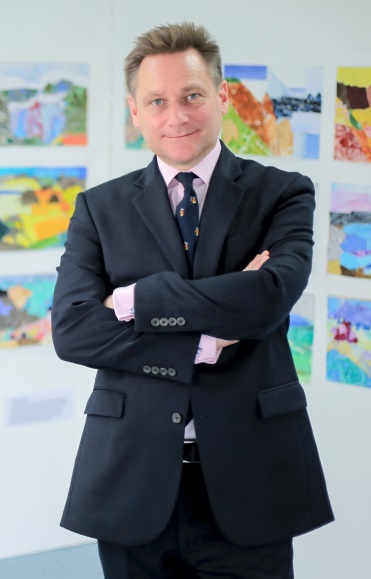 Tianjin is well sourced with International Schools and Wellington College International Tianjin is one of the most prestigious institutions. Julian Jeffrey has over 20 years experience in the education sector and has been appointed recently as the new master. A sublime educator with a distinctive approach, Julian Jeffrey emphasizes the College's role in Tianjin as a bastion of academic excellence with an acute ability to connect with the community, families and of course students.
Tianjin is well sourced with International Schools and Wellington College International Tianjin is one of the most prestigious institutions. Julian Jeffrey has over 20 years experience in the education sector and has been appointed recently as the new master. A sublime educator with a distinctive approach, Julian Jeffrey emphasizes the College's role in Tianjin as a bastion of academic excellence with an acute ability to connect with the community, families and of course students.
Business Tianjin sat down with Julian Jeffrey to discuss the ever-changing landscape of education and to talk about some of the unique features Wellington College is offering in town. Wellington College provides high quality education that makes Tianjin appear at the top of the list when parents are looking international education in China.
You have been working for Wellington College for 20 years already. What brought you to China?
I suppose I have a long association with China personally before it became a professional association. I have family ties here, so I came to visit a couple of times and spent extensive holidays here and of course toured around. I’ve always been interested in the Middle Kingdom’s history and I suppose that stems from me teaching history myself.
When Wellington College opened up a school here in Tianjin I got the opportunity to first come out here as an inspector with the school’s annual quality assurance inspectorate and one of the things I suggested at the time was that Wellington College would benefit from an exchange programme. It became immediately apparent that the most suitable department for such an exchange was my own, the history department, so I came back the following year for 3 months and whilst I was here I was very fortunate that they offered me a job. I had been at Wellington College for 18 years at the time so it was a fantastic new challenge.
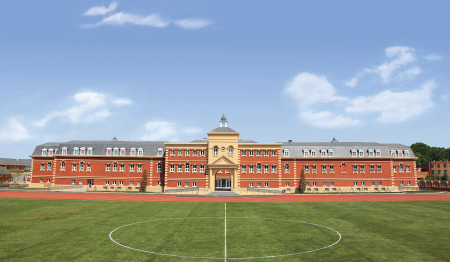 What was your previous role in Wellington College International Tianjin and could you tell us a little about the experiences that led you to your current position?
What was your previous role in Wellington College International Tianjin and could you tell us a little about the experiences that led you to your current position?
I came to Tianjin eventually as the Second Master, so that involved being head of the senior school but also having a whole school responsibility. It also involved teaching some history which was and always is a great joy for me. Yet, it was very different history to some of the topics that we taught back in the UK, with much more focus on world history, a global perspective, and therefore more appropriate to our international students. Becoming Second Master really gave me an opportunity to develop some of the programmes we have here and take a ‘hands on approach’, which gave me a great insight into the architecture of creating a great school.
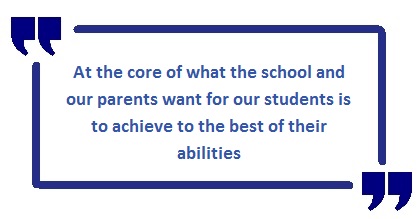 Wellington College has a distinctive British edge as well as an international class to it. What are the advantages of this and the respective programmes for the children and their future?
Wellington College has a distinctive British edge as well as an international class to it. What are the advantages of this and the respective programmes for the children and their future?
The British education system has distanced itself from passive learning; learning that allows an individual room to think somewhat outside the box. I perceive a desire for young people to develop critical thinking, to express ideas, be challenged, and develop their own ideas. What we would like is for them to think critically and as they get older, take that knowledge and the analytical skills they learn here at Wellington College and go on to to make a difference.
There is a willingness out there to see beyond the obvious, to develop curiosity and to search for new challenges. Those traits are therefore fostered not just by us, and the way we do things, but also by the attitude that our students develop, the maturity and the sense of satisfaction they gain from setting themselves a goal and seeing it through.
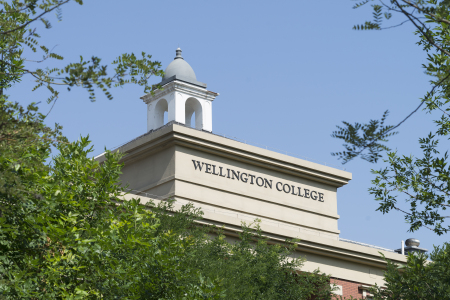 There are now several well-established international schools in Tianjin. What do you believe is Wellington College’s comparative advantage?
There are now several well-established international schools in Tianjin. What do you believe is Wellington College’s comparative advantage?
What keeps me getting up in the morning and coming to work full of enthusiasm is the development of new ways to engage pupils, driving up their standards and driving up their levels of achievement, no matter if it is in the classroom, on the sports pitch or in the theatre.
At the core of what the school and our parents want for our students is to achieve the best of their abilities. Our robust academic structures takes pride of place, which parents can trust and the results are evident once you can see our students’ university admissions statistics, which are among the strongest in China and not just in Tianjin.
Beyond that, we support our students in their learning, in their emotional wellbeing and in their development as resilient members of society. For Wellington College, this package is indivisible, making our model different as we have a world-renowned British qualification structure as well as British levels of behaviour and etiquette to support that.
The icing on the cake comes from our Wellington College background, our 5 core values - kindness, courage, integrity, responsibility and respect - which are embedded into our education and philosophy. The truth is, your Wellington College education doesn’t finish here - you’re a Wellingtonian for life. Wellington Connect, our online alumni network covers over 28,000 people. That is something we’re very proud of as it gives our young people the chance to be engaged with Wellington throughout their adult lives as well as their schooldays.
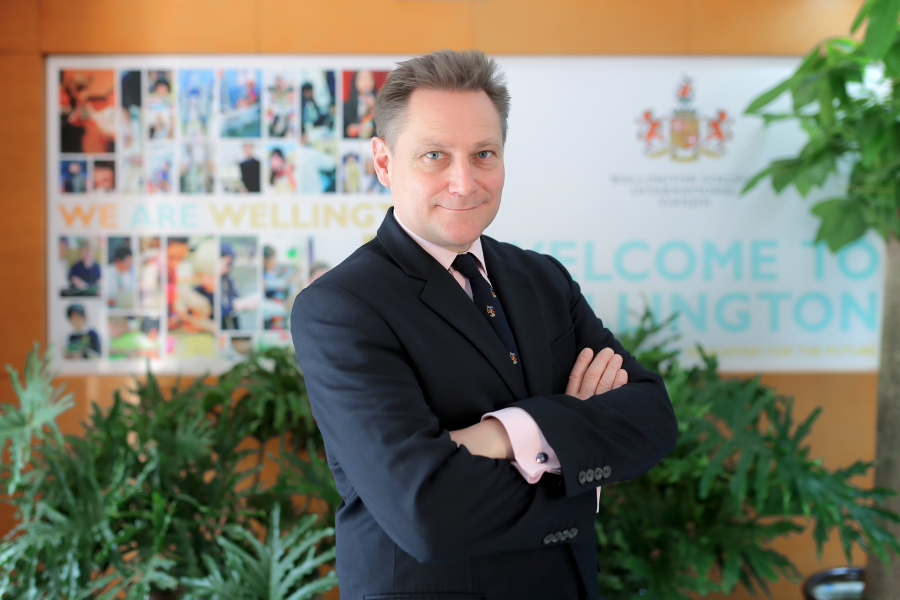 Could you give us an introduction about the courses and programmes of Wellington College International Tianjin?
Could you give us an introduction about the courses and programmes of Wellington College International Tianjin?
Our Early Years Programme follow s a bilingual programme. Wellington College China is very enthusiastic about developing this as we see bilingual education not only as providing the best of British, but also tying in hand-picked elements of the Chinese curriculum, which in combination aim to really stretch our young students.
This is a premium programme itself. Our bilingual provision accelerates cognitive function as well as language learning. So we see it as having benefits way beyond the superficial level of learning two languages.
In this way, in the Early Years Centre – The Nest as we call it – I feel our pupils will benefit from a range of carefully structured lessons, all designed to help them accelerate their learning. As they grow up through the school, they will encounter enhanced Mandarin programmes, with additional culture courses to deepen their understanding of China within a global context.
The Chinese education system is very different from the international system. Why do parents choose Wellington to educate their children?
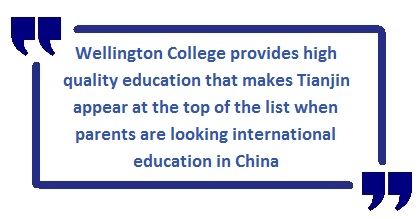 We have several links with Chinese schools around the city and, for me, visiting them is a real eye opener. I have witnessed this long-term achievement of creating highly motivated students, and the change is that now these are now hungry, not just for just national but international academic achievement.
We have several links with Chinese schools around the city and, for me, visiting them is a real eye opener. I have witnessed this long-term achievement of creating highly motivated students, and the change is that now these are now hungry, not just for just national but international academic achievement.
Our model seeks to offer the best of both worlds, ensuring rigorous modern international standards. Here at the College, we equally strive for an end product and there is a laser focus on achievement in a similar way to the Chinese education model. However, we offer additional aspects to our educational philosophy to include an active learning environment that helps to develop an education for life.
Our understanding of student wellbeing is not just centred on making them happy, but in asking those fundamental questions which are crucial to developing students’ ability to critically assess and conjure up answers. That’s the Wellingtonian edge.
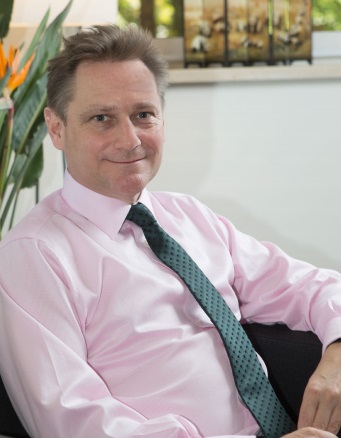 China’s central government has outlined a specific push towards an ‘innovation economy’ when referring to its economic rebalancing policy. Where do you feel Wellington College can play a part in this?
China’s central government has outlined a specific push towards an ‘innovation economy’ when referring to its economic rebalancing policy. Where do you feel Wellington College can play a part in this?
It is a timely shift in Chinese economic thinking, in my view, as the previous focus of the Chinese economic model was beginning to look a little tired, so pursuing this new and sustainable model is both prudent and effective.
Wellington College chose Tianjin because it is a high-tech centre and it is at the heart of the new Jing-Jin-Ji regional economic blueprint. Furthermore, Jing-Jin-Ji is overtly aimed at a cluster of key, world-renowned education centres designed to feed into the innovation economy.
There are a whole range of high schools, universities and vocational centres producing a range of talented young people. So this polycentric model is highly admirable and for us to fit into this model was a fantastic opportunity. Now we are one of the most prestigious education systems on offer here in Tianjin.
Asia has driven demand for international schools now for the last several years. China has over 530, with another 100 in the pipeline. Why has a hybrid western and eastern education proved so popular here?
Our hybrid model offers an attractive alternative in that it emphasises a global perspective and a move away from the Chinese system of intensified, rigid subjects which is both a strength but also its weakness.
Our view on education is an exciting development and it means there is now an option for parents and students to go down a different path. I trust that our model is one that matches the ambitions of parents keen for a first class education, framed within an overtly international outlook, whilst maintaining a healthy respect for local traditions and culture.
How does the College provide its students with skills that can take them to university, employment and beyond?
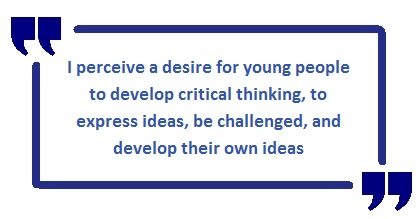 Wellington College International Tianjin has a role to play at both ends of the education process. From an educational perspective, it seeks to deliver a creative environment that encourages resilience and adaptability.
Wellington College International Tianjin has a role to play at both ends of the education process. From an educational perspective, it seeks to deliver a creative environment that encourages resilience and adaptability.
However, employability is a decisive factor in the modern job-seeking world, so through education fairs, extra-curricular activity, work experience and other events we aim to bring the working world as close to our students as possible. Exposure to this is clearly an attractive thing to a university. At these events, we attract the best intellects around, ranging from lecturers, engineers, and doctors. So we believe engagement between our students and the working environment ultimately feeds into the students’ preparation for life beyond school.
The orientation of the job market has changed in recent years and students of tomorrow (and today) must have a wider range of skills. This will provide them with the ability to transcend multiple sectors and markets and deliver a significant skill edge to grant them a higher employability level.
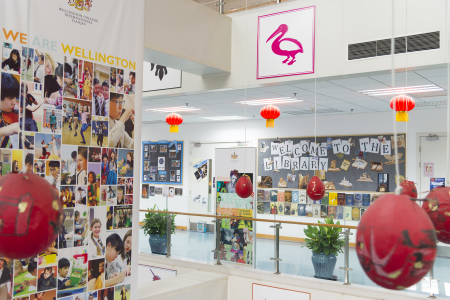 What would you say are the fundamental skills of being an educator?
What would you say are the fundamental skills of being an educator?
Personally, educators need to understand that the student comes first and it is crucial helping them by delivering new challenges. Young people need to be stimulated an excited by learning.
I also think we need to continue to attract and develop the best teachers from across the world. Leading British universities accredit our training and induction programmes here and this commitment on the part of the school highlights the importance we place on developing professionals across the Wellington College group. We have an Emerging Leaders’ Programme, a Middle Leaders’ Programme and a Senior Leaders’ Programme, all which offer the opportunity to grow with us. We value our staff and we want to see them dedicate their energies to our young people by allowing them to feel supported and respected.
What do you think are the great attributes of Tianjin and where do you feel Wellington College enhances the city?
Tianjin is the economic juggernaut of the north and the recent Jing-Jin-Ji plans emphasize a fantastic outlook for the future and Wellington College is a key part of it.
Where Tianjin really trumps the other cities in China is in its ‘livability’. There is a unique and relaxed vibe to Tianjin, a significant contrast to other urban environments in China. You never feel overwhelmed here. Wellington College is very proud to be in Tianjin and my aim is to make Tianjin proud to have Wellington College.
--- END ---